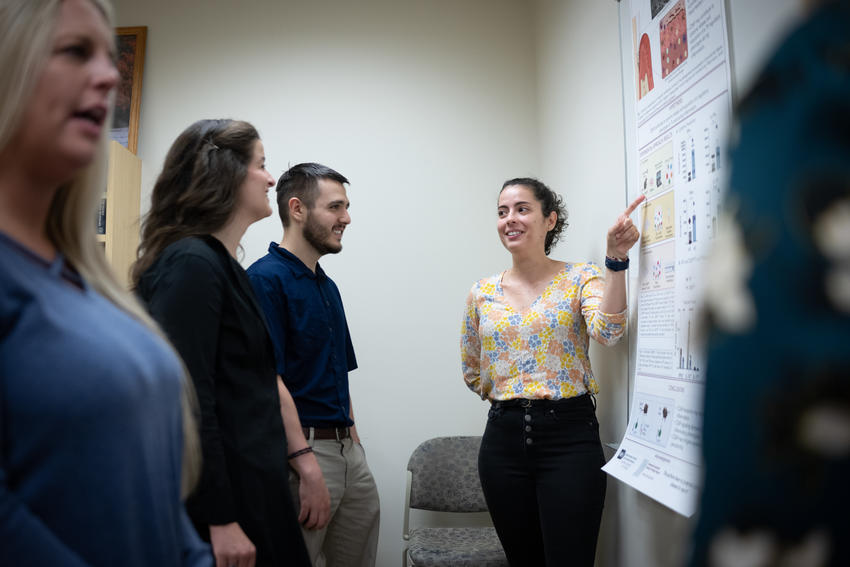Saavedra receives NIH Dental Clinical Research Fellowship

Flávia Saavedra, DDS, PhD ’23, received a Dental Clinical Research Fellowship from the National Institutes of Health National Institute for Dental and Craniofacial Research.
The Dental Clinical Research Fellowship is a competitive program that invites researchers to the NIDCR for two to three years to focus on an area of research important to the fellow, as well as undertaking clinical work at the NIH Clinical Center Dental Clinic.
Saavedra’s research spurs from her own experience as a dentist. “I saw how difficult it is to manage some conditions with conventional treatment strategies,” she recalled. In particular, she saw cases of periodontitis where removing dental plaque did not serve to stop the disease.
“When dental plaque is accumulating below the gum line, it can induce an overwhelming immune response in that tissue,” she explained. “Those immune cells induce inflammation in the hopes of fighting bacteria in dental plaque, but they use way more power than necessary. This causes collateral damage, destroying the periodontal ligament and bone tissues which hold teeth in place.”
Witnessing first-hand the impact periodontal disease can have on a patient’s life, Saavedra focused her research during her PhD candidacy on the use of immune-modulatory molecules to combat the extreme immune response. “More specifically, my research investigates how a surface module called CD69 modulates certain immune cells, and how this impacts the progression and severity of experimental periodontitis.”
As she completes her PhD program, the fellowship seemed like the perfect opportunity for Saavedra. “I ultimately want to open my own laboratory to study the immunological processes that contribute to progression of inflammatory conditions of the oral mucosa,” she explained. “At the DCRF, I will combine my clinical background and research skills to develop translational research projects. I’ll have the opportunity to continue developing my immunology research skills, but also have the chance to translate research findings into therapy for treating chronic inflammatory conditions that affect the oral mucosa.”
Saavedra didn’t expect to get into the fellowship on her first try: it’s competitive, and many people have to apply multiple times. So she was thrilled to find out that she was accepted. “To be honest, I was just proud of myself and grateful for the support and training provided by my mentors at the Herzberg and Costalonga Lab, as well as the MinnCResT program,” she reflected.
As she plans to begin the fellowship this summer, Saavedra is looking forward to the new perspective that she’ll gain, as she explores how her clinical and research interests intersect. “Overall, it will broaden my horizons and help me to make a positive impact in dental science,” she said.
But most of all, Saavedra is grateful for the professional mentorship and guidance she has received.
“The DDS/PhD training path is full of hardship. The pressures are high and we often suffer from lack of investment, financial struggles and high stress levels,” she said. “I want to express my gratitude to all people that invest their time and efforts into building the next generation of dentist scientists: the Oral Biology program, MinnCResT, and more. I appreciate all the professionals that are actively mentoring, helping and training graduate students.”